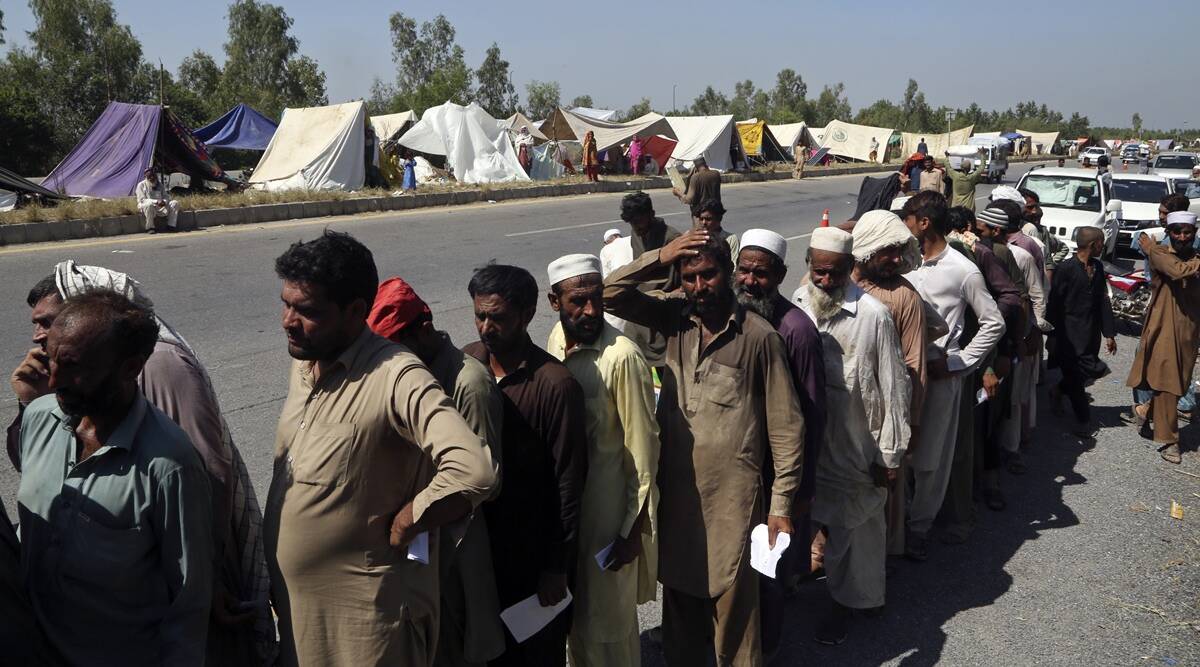Floods and foes : On Pakistan floods and Indian response
India and Pakistan are best placed to help each other during natural disasters
Prime Minister Narendra Modi’s message, in a tweet on Monday evening, expressing condolences to the victims of the flooding in Pakistan, is a welcome gesture, especially after weeks of silence over what has been one of the worst natural disasters in the neighbourhood in recent times. More than 1,100 people have died, and over 33 million people have been affected, as officials say one-third of the country is under water, and estimate about $10 billion in damage to homes, roads and infrastructure. The floods have also affected standing crops, and as the waters recede, fears of disease as well as food shortages are expected to rise. In addition, the worry that the devastating floods have been caused due to climate change is a worry for all of South Asia, one of the world’s regions most vulnerable to global warming. On Tuesday, UN Secretary General Antonio Guterres launched a global appeal for aid to Pakistan, that he said had been hit by a “monsoon on steroids ”, indicating unnatural climate patterns. Countries such as the U.K., the U.S., China, the UAE, Qatar and Turkey have already dispatched aid to Pakistan, and many others have promised help, while the IMF announced a $1.1 billion bailout tranche on Tuesday, as part of ongoing negotiations with the country that is already steeped in an economic crisis. Given that the crisis will only deepen at this point, Pakistan Finance Minister Miftah Ismail also said on Monday that he may propose lifting the trade ban imposed on India after the Jammu-Kashmir reorganisation in 2019, so-as-to import Indian vegetables and essential commodities. Thus far, Islamabad has only made exceptions for pharmaceutical imports from India during the COVID-19 pandemic, and India’s humanitarian aid to Afghanistan.
Despite the poor state of India-Pakistan ties, both New Delhi and Islamabad must put aside their domestic considerations, and seize the moment to help those stranded in the flooding as best they can. India cannot pride itself as being the “first responder” in the neighbourhood — as it has been for Nepal, Sri Lanka, the Maldives and Afghanistan — if it fails to see the suffering right at its land boundary with Pakistan. It would be churlish and short-sighted of Pakistan to reject an opportunity to lift the trade ban with India that has only hurt its own interests, and to give up a source of affordable supplies at a time of such calamity. And it would be both tragic and ridiculous if the enmity between the two countries would not allow them to work together at a time such as this, even as their governments allow their cricket teams to play each other for financial considerations. Significantly, Prime Minister Narendra Modi and Pakistan Prime Minister Shehbaz Sharif are due to travel to Uzbekistan in September for the SCO summit. While a more lasting dialogue, that has been suspended between the two countries for nearly a decade over the terrorism issue, is unlikely, the leaders must find the time to discuss ways to mitigate the catastrophe at hand.
